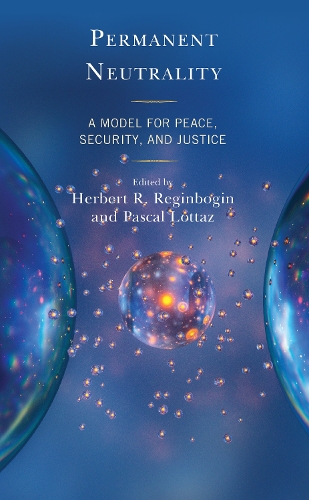
Permanent Neutrality: A Model for Peace, Security, and Justice
(Hardback)
Available Formats
Publishing Details
Permanent Neutrality: A Model for Peace, Security, and Justice
By (Author) Herbert R. Reginbogin
Edited by Pascal Lottaz
Contributions by Glenn Diesen
Contributions by Heinz Gaertner
Contributions by Gunther Hauser
Contributions by P. Terrence Hopmann
Contributions by Annette Lu Hsiu-lien
Contributions by Stephen C. Neff
Contributions by Michael OHanlon
Contributions by Michael Tsai
Bloomsbury Publishing PLC
Lexington Books
13th March 2020
United States
Classifications
Professional and Scholarly
Non Fiction
Arms negotiation and control
341.64
Physical Properties
Hardback
250
Width 162mm, Height 227mm, Spine 25mm
544g
Description
This collection examines the theory, practice, and application of state neutrality in international relations. With a focus on its modern-day applications, the studies in this volume analyze the global implications of permanent neutrality for Taiwan, Russia, Ukraine, the European Union, and the United States. Exploring permanent neutralitys role as a realist security model capable of rivaling collective security, the authors argue that permanent neutrality has the potential to decrease major security dilemmas on the global stage.
Reviews
Neutrality, as both an idea and concrete foreign policy tool, has all but disappeared from the political landscape in the aftermath of World War II. Pascal Lottaz and Herbert R. Reginbogin are to be congratulated for assembling this brilliant collection of essays that sheds important light on the nature and characteristics of a millenarianif highly underratedpolitical concept and practice that is still relevant to today's international politics. -- Efraim Karsh, King's College London & Bar-Ilan University
Neutrality, as both an idea and concrete foreign policy tool, has all but disappeared from the political landscape in the aftermath of World War II. Pascal Lottaz and Herbert R. Reginbogin are to be congratulated for assembling this brilliant collection of essays that sheds important light on the nature and characteristics of a millenarianif highly underratedpolitical concept and practice that is still relevant to today's international politics. -- Efraim Karsh, King's College London & Bar-Ilan University
Author Bio
Herbert R. Reginbogin is professor of international relations and international law and currently fellow at the Catholic University of America.
Pascal Lottaz is assistant professor at the Waseda Institute for Advanced Study.
